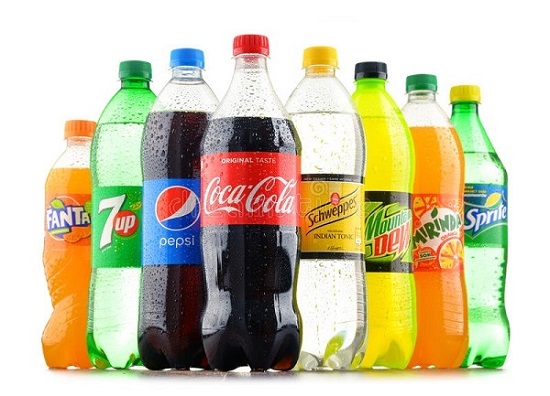
The executive secretary, National Health Insurance Scheme (NHIS), Prof. Mohammed Sambo, has said that the sugar-sweetened beverage (SSB) tax and the National Health Insurance Authority (NHIA) Bill 2022 afford the country a revolutionary opportunity to achieve Universal Health Coverage (UHC).
Sambo said this at the Health Financing Policy Dialogue organised by PharmAccess Foundation in collaboration with the World Bank and the Nigeria Health Watch in Abuja, themed “’New Health Financing Approaches in Nigeria: Implementation of SSB tax in Nigeria’.
The Minister of Finance, Budget and National Planning, Mrs. Zainab Ahmed while presenting the breakdown of the 2022 budget had announced an excise tax of N10 per litre on all non-alcoholic, carbonated and sweetened beverages.
The minister said the new tax was introduced to raise excise duties and revenues for health-related and other critical expenditures in line with the 2022 budget priorities.
Recall that as part of the country’s healthcare reforms, President Muhammadu Buhari signed the new Health Insurance Bill into Law, ending the older National Health Insurance Scheme (NHIS).
Buhari noted that the new health insurance law will repeal the NHIS Act of 2004, before signing the new National Health Insurance Authority Bill 2022 into law on Thursday.
Announcing this on his verified Twitter handle, Buhari said that the new law was part of his government’s efforts to achieve Universal Health Coverage for Nigerians.
“As part of our healthcare reforms, I have signed into law the recently passed National Health Insurance Authority Bill 2022, which repeals the National Health Insurance Scheme Act.
“We will ensure the full implementation of the new Act to provide coverage for all Nigerians,” Buhari said.
Also, the president noted that the new health insurance law will repeal the National Health Insurance Scheme (NHIS) Act of 2004.
The NHIS boss said that the revolutionary services would also reduce the suffering of Nigerians in accessing care.
He said that most countries that have successfully that have been able to attain UHC prioritised health while calling on the country to also prioritise health.
The director-general, Budget Office of the Federation (BoF), Mr. Ben Akabueze said given the country’s low sugar consumption, many questioned the necessity of SSB tax.
Akabueze said that the prevalence of non-communicable diseases (NCDs) is on the rise in the country. “Prevention is always better than cure. We should not wait to get to a crisis point to take steps.
“According to the SSB tax data, the tax has successfully decreased sugar intake.
“The cost of managing the disease load is much more than the charge placed on consumers. The SSB tax will improve our health outcomes,” he said.
The senior health specialist, health, nutrition and population, World Bank Group, Dr. Olumide Okunola, said that the country is one of the world’s highest consumers of soft drink and the volume of consumption is expected to rise even further.
Okunola said that no country can achieve UHC without public financing.
Meanwhile, the director of Health Planning Research and Statistics, FMOH, Dr. Ngozi Azodoh said that the country must use this tax to stem the consumption of these products that affect the health of Nigerians not just for adults alone but for children and the next generation.
Azodoh said that Nigerians also need to start thinking about what they can do right now to protect their health in the future.
The country director, Pharm Access Foundation, Dr. Njide Ndili, said that the COVID-19 pandemic has caused a significant decrease in external funding to the healthcare sector, making it imperative for LMICs to be more creative in local resources mobilisation for health.
“In the Finance Act of 2021, the Federal Government introduced a pro-health tax that aims to lower consumption of sugar-sweetened beverages, bringing health benefits and generate income for the government to finance the healthcare sector,” she said.
Ndili said that during the COVID-19 pandemic, donor funding began to shrink as most donors began to focus on their own countries.
“We felt it was necessary to begin discussing corporate funding for the country in light of what other countries are doing.
“We started collaborations to discuss how we can achieve local resource mobilisation for the country and this is the angle of our discussions today.
In her remarks, the managing director, Nigeria Health Watch (NHW), Mrs. Vivianne Ihekweazu, said that her organisation continued to push for funding for the country’s health sector.
Ihekweazu expressed happiness with the N10 SSB tax and how it could potentially increase the funding of the country’s health care system.
She said that the country’s primary health care (PHC) is still underfunded and also advocated for increased financing for the health sector so that citizens can receive better and higher-quality basic health care.
Meanwhile, some experts also stressed that SSBs have little to no nutritional value and, thus, a tax on SSBs should be seen as one component of a comprehensive approach to tackling unhealthy diets.
They noted that despite any industry push back against this tax, it was important that the government safeguard the health of Nigerians.

